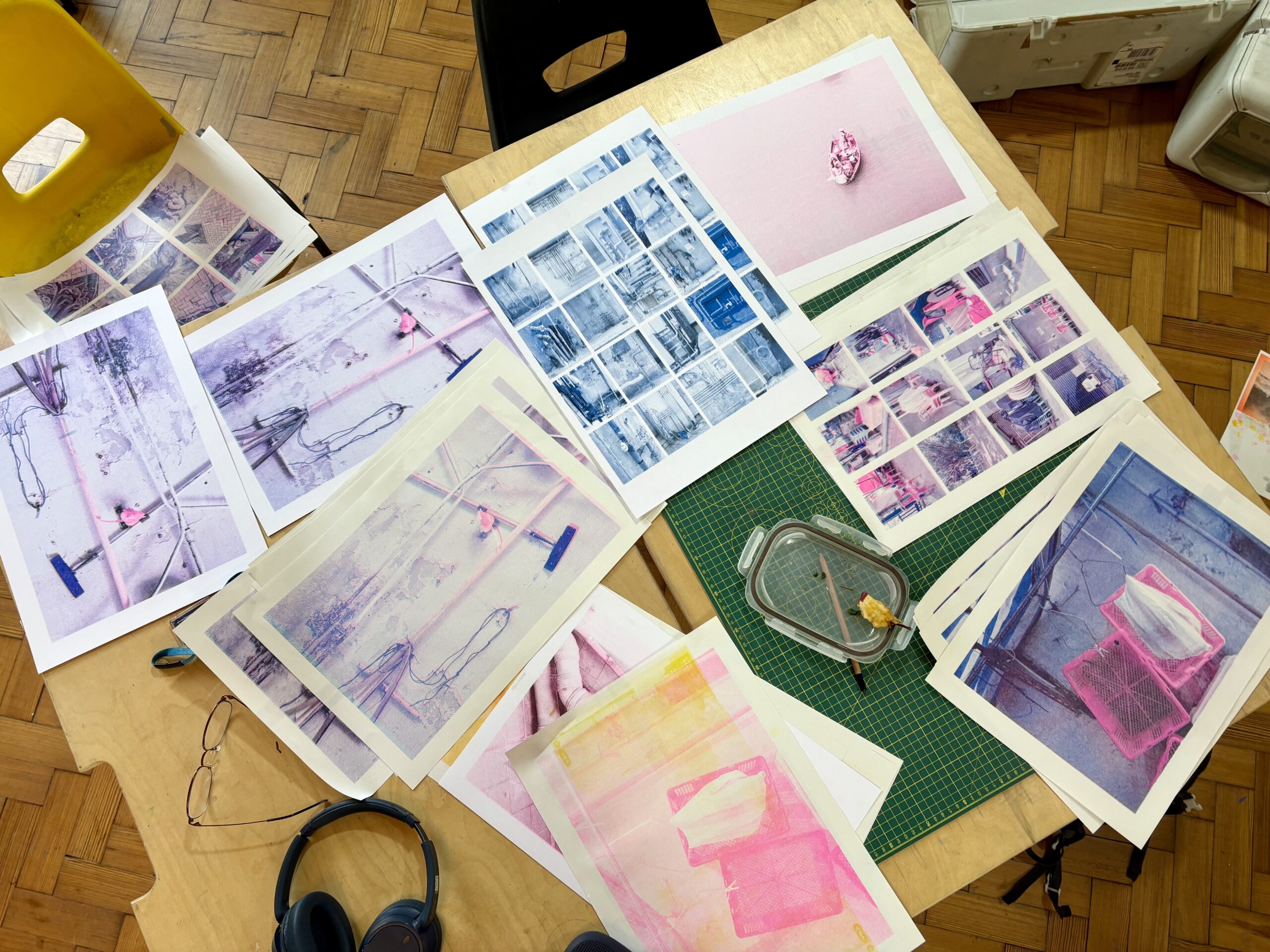Following on from their MADE IT residencies, we've been catching up with the artists about their practice.
Earlier this spring, Sofia Geraci, a recent Fine Art graduate from the Manchester School of Art, joined us at Convention House for a two-week residency and access to on-site facilities. Her practice works across ceramics, print and digital processes, and is rooted in ideas of memory, craft, and community.
Sofia’s work weaves together themes of labour, storytelling, and diasporic memory, often drawing from familial histories and everyday rituals. With a strong connection to process and materials, her practice embraces traditional craft, particularly ceramic and screen print techniques, while folding in elements of media, such as camcorder footage and stills. She describes her approach as one that ‘starts with a collection: whether of objects, memories, or stories’ and grows through conversation and research.
“Craft is so important in my practice. My grandmother was a seamstress, and there’s a sense of honouring that lineage – not by replicating her work, but by recognising it as a sophisticated form.”
The studio offered Sofia space to be present with her work. While her university experience offered well-equipped workshops, the residency gave her something distinct: a space of autonomy, reflection, and play.
She began the residency working with ceramic tiles, taking imprints and scans of the communal kitchen space in Convention House – marks, patterns and traces of use left behind by others. These textures became a record of invisible labour and shared space, echoing her wider themes of memory and place.
“I was looking at the places I used the most, like the kitchen, and just started noticing all the little marks of what once was.”
Throughout her stay, Sofia spent time connecting with studio holder James Thompson and Zhao Ruo Tong, another artist undertaking a residency, sharing work in progress and bouncing ideas off one another in the communal spaces. These informal conversations proved a vital part of the experience:
“I can’t work without a community. I need to be around people, around conversation – that’s where the ideas come from.”
This sense of network and mutual influence continued in the print studio. Inspired by film stills she’d taken on a camcorder during a previous trip to Cyprus, Sofia experimented with risograph printing, exploring how still images could create shared, layered memories. The lo-fi aesthetic of 1990s digital technology resonated strongly with her ideas:
“That kind of tech holds memory differently. It wasn’t made for mass distribution – it was precious, used to document things that mattered and often re-shown to small groups of close friends and family in a very particular setting.”
Staying with a friend’s family on the island, Sofia used the trip to reflect on her own heritage, particularly her familial history of working the land. With Sofia’s friend’s grandparents owning many olive trees, she was invited to help with last year’s yield and make olive oil. This was something she could never experience directly with her family, speaking of her grandparents, ‘by the time I was born, they’d either passed away or were too old to work the land any more’. Through the footage and memories collected, a parallel emerged between her relationship with the land and her parents, and the shared heritage and experiences that were brought to the surface. Again, part of the same organic development of her work, born through research and conversation, exploring shared moments and reframing them through practice.
By the end of the two weeks at Convention House, Sofia had developed a body of new work, reignited her relationship with making, and clarified what she needed to support her practice moving forward: dedicated space, a connected community, and time free from external expectations.
More recently, Sofia joined Reused Clay, a community ceramics collective in West London, which reclaims waste clay from construction sites to create new objects. ‘It’s nice to be part of something that’s not just mine, but feels shared’, something which feels like a natural next step when so much of her practice is built on the shared evolutions of shared practice and community.
Though affordable workspace remains a challenge, she has begun to explore working more digitally in the meantime, using screen-based processes as a portable, accessible continuation of her practice.
‘This was the first time I’ve had access to a space like that without a deadline. It made me realise how much better I work when I can slow down. That freedom is something I want to hold onto in the way that I work.’
Find Sofia: @geraci.sofia
MADE IT is organised by Short Supply, and funded by Arts Council England, and the 2024 MADE IT was organised in partnership with DMZ Studio.


















